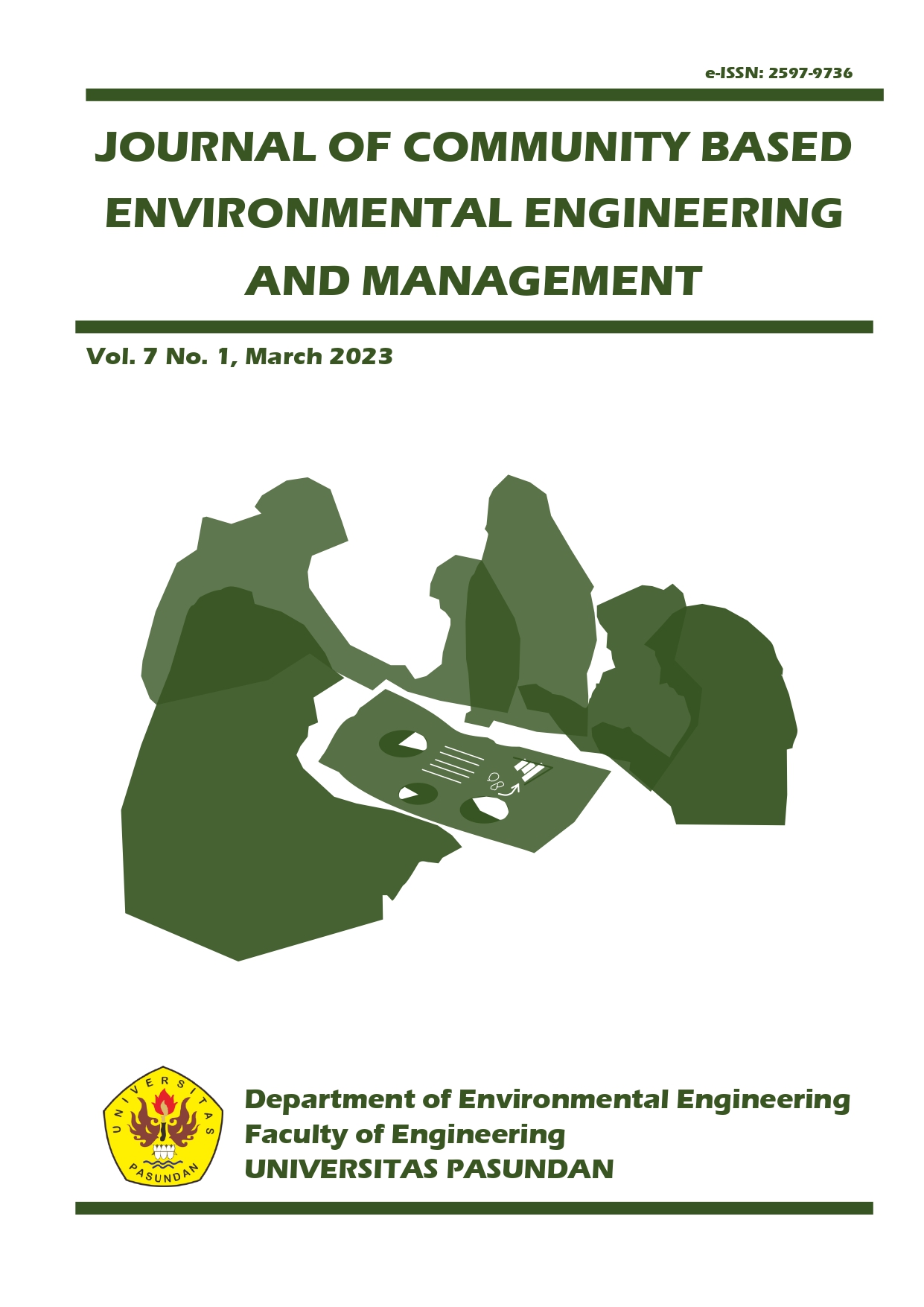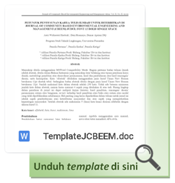Problem and Project-based Learning as an Effective Environmental Education (EE) Methods: A Case of Textbook Development in Medan City Schools
DOI:
https://doi.org/10.23969/jcbeem.v7i1.7419Keywords:
Deli River, environmental education, environmental leader, problem-based learning, project-based learningAbstract
Environmental education (EE) is a tool for educating people about the environment, and EE textbooks are an essential resource for this purpose. This book was created by a group of elementary, middle, and high school teachers in the Medan City area who had yet to gain experience in textbook writing. A combination of problem and project-based learning (PBL and PjBL) by triggering teachers to develop a textbook for EE was carefully conducted. The project took three years, during which the teachers worked on conceptualizing and setting goals, selecting themes, creating the content, and designing teaching materials. Initially, the teachers conducted a poll which acted as a PBL approach to identify the most pressing environmental issues faced by the people of Medan City. This poll showed that waste management was the most crucial issue, followed by problems related to rivers, wastewater, waste disposal, and floods. The teachers then wrote chapters as a part of the PjBL approach for the EE book based on the identified issues and aligned with the EE curriculum. Over three years, the teachers tested the book with their students, evaluated the results, and revised it accordingly. The final questionnaire results showed that the experience of creating an EE book was valuable to the teachers and inspired them to consider making more EE resources in the future.
Downloads
References
Acosta Castellanos, P.M., Queiruga-Dios, A., Hernández Encinas, A., Acosta, L.C., (2020). Environmental Education in Environmental Engineering: Analysis of the Situation in Colombia and Latin America. Sustainability 12, 7239. https://doi.org/10.3390/su12187239
Aldhila, A., Warsono, H., Suwitri, S., Astuti, R.S., (2021). Management of slum settlements based on sustainable development in the Deli Watershed of Medan City. BIRCI 4, 2791–2799. https://doi.org/10.33258/birci.v4i2.1988
Ali, S.S. (2019). Problem Based Learning: A Student-Centered Approach. ELT 12, 73. https://doi.org/10.5539/elt.v12n5p73
Aminatun, D., Oktaviani, L., (2019). Memrise: Promoting Students' Autonomous Learning Skill through Language Learning Application. Metathesis. J. Engl. Lang. Lit. Teach. 3, 214. https://doi.org/10.31002/ metathesis.v3i2.1982
Farrow, J., Kavanagh, S., Samudra, P. (2022). Exploring Relationships between Professional Development and Teachers' Enactments of Project-Based Learning. Education Sciences 12, 282. https://doi.org/10.3390/educsci12040282
Fekih Zguir, M., Dubis, S., Koç, M., 2021. Embedding Education for Sustainable Development (ESD) and SDGs values in curriculum: A comparative review on Qatar, Singapore and New Zealand. Journal of Cleaner Production 319, 128534. https://doi.org/10.1016/j.jclepro.2021.128534
Pace, L.A., Saritas, O., Deidun, A., 2023. Exploring future research and innovation directions for a sustainable blue economy. Marine Policy 148, 105433. https://doi.org/10.1016/j.marpol.2022.105433
Rachman, I, Dewi, F.T., Simanjuntak, E., Muklis, Akmal, H., Rambe, R., 2021. Efforts to save the deli river environment with environmental education for students (study case: schools around the Deli River in Medan City Indonesia). IOP Conf. Ser.: Earth Environ. Sci. 802, 012055. https://doi.org/10.1088/1755-1315/802/1/012055
Rachman, Indriyani, Soesanto, Q.M.B., Matsumoto, T., Septiana, A.I., 2021. The Implementation of Problem-Based Learning (PBL) for Environmental Education in Elementary Schools: Case Study of Malang City in East Java. Presented at the 5th Asian Education Symposium 2020 (AES 2020), Bandung, Indonesia. https://doi.org/10.2991/assehr.k.210715.067
Reid, A., 2019. Climate change education and research: possibilities and potentials versus problems and perils? Environmental Education Research 25, 767–790. https://doi.org/10.1080/13504622.2019.1664075
Seikkula-Leino, J., Jónsdóttir, S.R., Håkansson-Lindqvist, M., Westerberg, M., Eriksson-Bergström, S., 2021. Responding to Global Challenges through Education: Entrepreneurial, Sustainable, and Pro-Environmental Education in Nordic Teacher Education Curricula. Sustainability 13, 12808. https://doi.org/10.3390/su132212808
Sukackė, V., Guerra, A.O.P. de C., Ellinger, D., Carlos, V., Petronienė, S., Gaižiūnienė, L., Blanch, S., Marbà-Tallada, A., Brose, A., 2022. Towards Active Evidence-Based Learning in Engineering Education: A Systematic Literature Review of PBL, PjBL, and CBL. Sustainability 14, 13955. https://doi.org/10.3390/su142113955
Susanti, E., (2018). Risk Factors for Diarrhea Cases in Communities Living Along Deli River, North Sumatera. J EPIDEMIOL PUBLIC HEALT 04, 47–54. https://doi.org/10.26911/jepublichealth.2019.04.01.06
Tell, J., Hoveskog, M., (2022). Applied engineering education for soft skills in the context of sustainability and mobility. IJSHE 23, 324–336. https://doi.org/10.1108/IJSHE-07-2022-0202
Wiek, A., Xiong, A., Brundiers, K., van der Leeuw, S., (2014). Integrating problem- and project-based learning into sustainability programs: A case study on the School of Sustainability at Arizona State University. International Journal of Sustainability in Higher Education 15, 431–449. https://doi.org/10.1108/IJSHE-02-2013-0013














